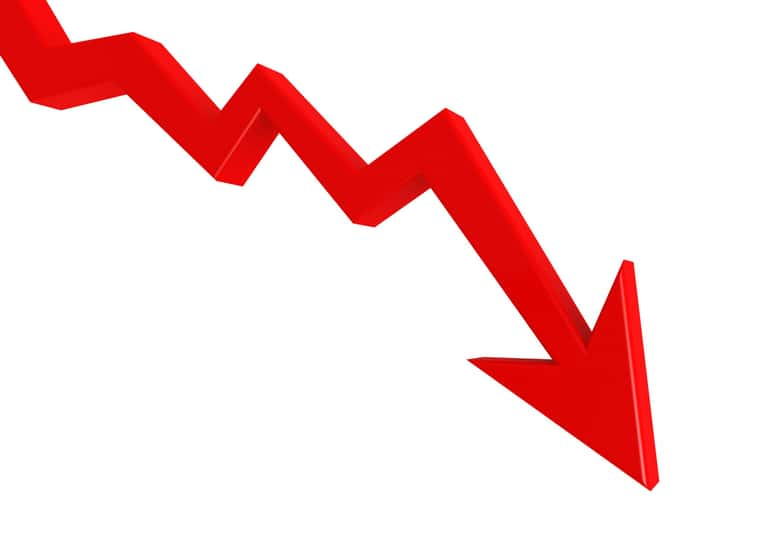With the clean energy drive gaining momentum, the electric vehicle (EV) sector is being jammed with new players. New EV startups, along with tech giants, are making deep forays into the sector, which has made it difficult for the analysts to separate the wheat from the chaff. Existing players are facing stiff challenges to their market positions.
Investors have grown concerned about current valuations in the EV space as a result. This sentiment is evident in Global X Autonomous & Electric Vehicles ETF’s (DRIV) 2.1% loss over the past month.
Furthermore, rising Treasury yields on inflation concerns are leading some investors to rotate away from expensive seeking quality bargain names. The 10-year U.S. Treasury yield is hovering above 1.7% and the 30-year Treasury yield increased to 2.41% yesterday. Rising Treasury yields typically have a negative impact on the equity markets. Hence, we think overvalued EV companies Tesla, Inc. (TSLA - Get Rating) and Fisker Inc. (FSR - Get Rating) are best avoided now.
Click here to checkout our Electric Vehicle Industry Report for 2021
Tesla, Inc. (TSLA - Get Rating)
Headquartered in Palo Alto, California, the electric car juggernaut TSLA is a leading plug-in and battery electric vehicle car manufacturer. The company operates through two segments – Automotive and Energy Generation, and Storage.
Earlier this month, EVmo, Inc., a leading provider of vehicles to rideshare and the delivery gig economy, collaborated with TSLA to become one of its early rideshare fleet partners in the U.S. that will deploy EVs. Also, TSLA is on track to begin vehicle production with structural batteries in Berlin and Austin, Tex. this year.
Despite these developments, TSLA has been struggling to keep pace with its strong competitors which are making deeper forays into the EV space while trading at relatively lower valuations. In terms of non-GAAP forward price/earnings, TSLA is currently trading at 147.67x, which is 690.3% higher than the industry average 18.69x. The stock’s forward price/sales of 12.21x is also significantly higher than the industry average 1.23x. The stock has lost 13.4% year-to-date.
In the fourth quarter, ended December 31, TSLA’s total revenues increased 46% year-over-year to $10.74 billion. However, its automotive gross margin was 24.1% over this period, down 360 basis points sequentially. Also, its net income has decreased 18.4% from the previous quarter to $270 million.
TSLA’s POWR Ratings reflect its poor prospects. It has been rated an F in Value, and a D in Sentiment and Stability. The POWR Ratings are calculated by considering 118 different factors with each factor weighted to an optimal degree. Within the 51-stock, B-rated Auto & Vehicle Manufacturers industry, it is ranked #36.
In total, we rate TSLA on eight different levels. Beyond what we’ve stated above, we have also given TSLA grades for Momentum, Quality, and Growth. Get all TSLA’s ratings here.
Fisker Inc. (FSR - Get Rating)
Based in California, FSR designs and manufactures electric vehicles and mobility solutions. It made its public debut through a reverse merger in October 2020. The company went public through a sponsorship with Apollo Global Management affiliated Spartan Acquisition Energy Corporation on October 30.
FSR is expected to launch its Fisker Ocean vehicle in the fourth quarter of 2022, and three vehicles by 2025. On February 24, FSR announced that it has collaborated with Hon Hai Technology Group to pioneer a new market segment and jointly develop a breakthrough electric vehicle.
Last December, the company announced its partnership with auto supplier Magna International to supply the vehicle platform and build its Ocean SUV. It plans to launch its debut EV Ocean with autonomous driving features, integrated through the Fisker Intelligent Pilot.
However, FSR is a pre-revenue company. The company has neither engaged in any significant operations nor generated any operating revenues. Its loss from operations has increased 1033% year-over-year to $31,306 in the fourth quarter, ended December 31 Its net loss has increased 299% from its year-ago value to $12,037, and its loss per share grew 66.7% to $0.05 over the same period.
Analysts expect FSR to report a loss per share of $0.21 in the current quarter, ending March 31, 2021. They further expect FSR’s loss per share of $0.94 to increase 135% this year.
FSR stock has gained 12.7% year-to-date, but the current price level is detached from its current fundamentals. In terms of forward price/book, the stock is currently trading at 4.83x, 37.3% higher than the industry average 3.52x. The stock has lost 42.1% over the past month.
FSR’s uncertain prospects are apparent in its POWR Ratings. FSR has a D grade for Stability, and C for Growth, Value, and Sentiment. In the same industry, the stock is ranked #39.
Click here to see the additional POWR Ratings for FSR (Momentum and Quality).
The POWR Ratings are calculated by considering 118 different factors with each factor weighted to an optimal degree.
Click here to checkout our Electric Vehicle Industry Report for 2021
Want More Great Investing Ideas?
9 “MUST OWN” Growth Stocks for 2021
How to Ride the NEW Stock Bubble?
5 WINNING Stocks Chart Patterns
Why Are Stocks Struggling with 4,000?
TSLA shares were trading at $622.51 per share on Tuesday afternoon, up $11.22 (+1.84%). Year-to-date, TSLA has declined -11.78%, versus a 5.72% rise in the benchmark S&P 500 index during the same period.
About the Author: Rishab Dugar

Rishab is a financial journalist and investment analyst. His investment approach is to focus on quality stocks, trading at low prices, with business models that he readily understands. More...
More Resources for the Stocks in this Article
| Ticker | POWR Rating | Industry Rank | Rank in Industry |
| TSLA | Get Rating | Get Rating | Get Rating |
| FSR | Get Rating | Get Rating | Get Rating |






